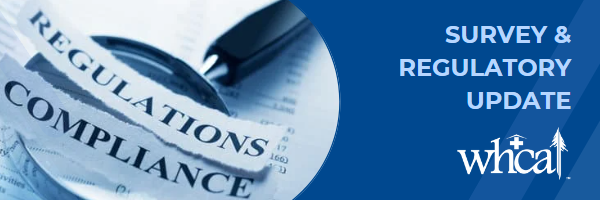Resident Dementia Screening in Assisted Living
While all assisted living residents receive preadmission and ongoing assessments, those with symptoms of dementia require the facility staff to do some additional data collection. This data should be used to develop person-centered negotiated service agreements as well as tailor activities and resident routines. Likewise, dementia-specific assessment information can be used to address a resident’s anticipated challenging behaviors and inform staff’s appropriate responses.
The preadmission assessment prompts the qualified assessor to learn of the prospective resident’s medical history as well as any significant known behaviors or symptoms that may cause concern or require special care. This may include dementia-specific care.
The full assessment, conducted within 14 days of a resident’s move to the assisted living and at least annually thereafter (semi-annually for residents receiving care under the Specialized Dementia Care Medicaid contract), prompts the assessor to learn of any special needs the resident may have particular to memory loss. WAC 388-78A-2090 states the facility should “use an appropriate tool to determine the presence of symptoms consistent with and implications for care and services of dementia.”
To delve in a bit deeper, the WAC section clearly states that any determination of a resident’s short-term memory loss must be based on objective evidence. This fact prompts a facility to consistently use a method to evaluate not only the presence of memory loss, but its level of severity. This allows a resident’s condition to be tracked over time, and adjustments made to the care and services offered based on those changes.
There are several different high-quality objective assessment tools to determine the presence and level of memory loss a resident might have. Saint Louis University Mental Status (SLUMS) examination tool is a standardized easy-to-use form, as is the Montreal Cognitive Assessment (MoCA). Both tests feature training programs on their respective websites, so staff can learn to utilize these tools accurately; it is recommended anyone using these tools take the associated training and document completion to demonstrate competency. Finally, DSHS uses a standardized tool to determine a resident’s appropriateness to live in a secure memory care unit; that form can also suffice as an objective method to determine memory loss status and can be found here.
If a resident has symptoms consistent with dementia (not necessarily a medical diagnosis like Alzheimer’s or similar), the facility must extend the contents of their assessment to encompass additional resident information that may play a significant role in the development and implementation of the resident’s negotiated service agreement. WAC 388-78A-2370 requires the facility gather the following information, specific to the resident’s significant life experiences, whenever a resident has symptoms consistent with dementia:
- Family members and significant relationships
- Education and training
- Employment and career experiences
- Religious and spiritual preferences
- Familiar roles or sources of pride and pleasure
Likewise, the facility must collect information on the resident’s ability or inability to articulate personal needs and initiate activity. Finally, the facility must identify information on resident behaviors that express needs or concerns that a resident might be unable to verbalize, including but not limited to:
- Agitation
- Wandering
- Resistance to care
- Social isolation
- Aggression
The WAC does not address the format of these additional assessment topics; the facility might have different documents or methods to collect this varied information. The information gathered from these assessment topics should inform the resident’s negotiated service agreement, routines, habits, preferences, as well as staff interventions.
The assessment contents must be available for review by DSHS staff and ombuds upon request.
AL Questions?
Please email Vicki McNealley or call her at 1-800-562-6170, ext. 107.
Posted in Assisted Living, Survey & Regulatory

